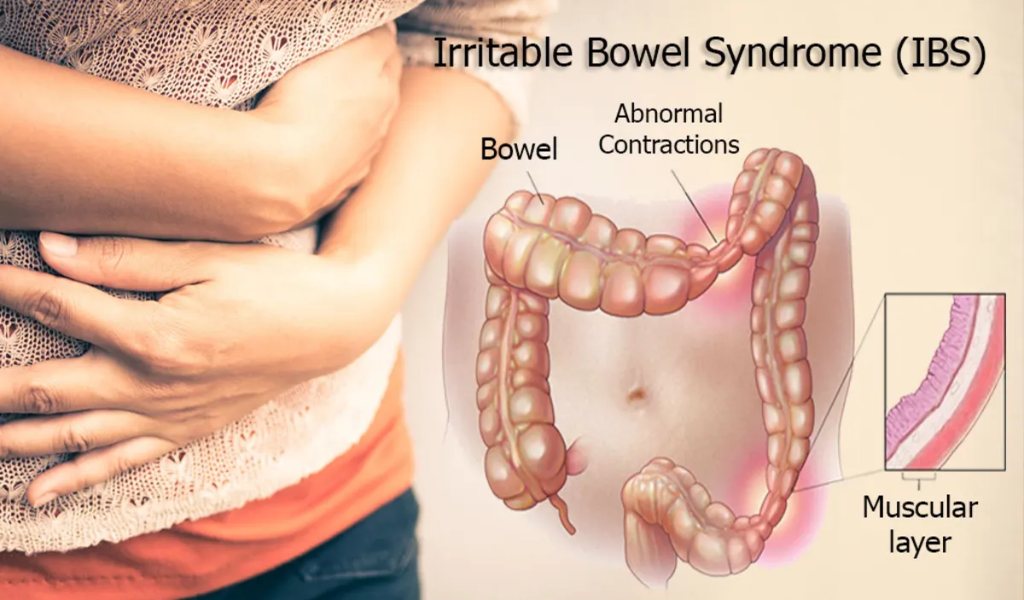Can CBD gummies cause constipation? CBD (cannabidiol) has gained significant attention in the health and wellness sphere for its potential therapeutic effects. Among its various consumption methods, CBD gummies have emerged as a popular choice.
Though CBD gummies are renowned for their potential benefits such as pain alleviation, anxiety reduction, and sleep promotion, some concerns have been raised about their potential to induce constipation. This article aims to delve into the possible connection between CBD gummies and constipation, shedding light on the validity of such claims.
Bringing up the topic of constipation is often approached with a sense of delicacy due to its intimate nature. This common ailment, though universal, is frequently met with unease during conversations. The discomfort arises not only from its potential embarrassment but also from the challenges of addressing its complexities. Constipation can stem from a multitude of triggers, making it a multifaceted issue to address. While seeking a resolution can be perplexing, there’s a beacon of hope in the form of CBD oil, known for its potential to alleviate symptoms and restore the body’s equilibrium.
Can CBD Gummies Cause Constipation?

Amidst the spectrum of potential remedies, CBD oil emerges as an innovative approach to tackling constipation. This natural compound has garnered recognition for its therapeutic effects, which extend beyond its conventional applications. Central to its effectiveness is the interaction between CBD and the body’s CB receptors. This dynamic interplay plays a pivotal role in mitigating the challenges posed by constipation. The mechanism involves triggering muscle relaxation, ameliorating mental stress, and orchestrating responses to pain and inflammation – all contributing to the alleviation of constipation’s grip.
The Unconventional Role of CBD Oil in Constipation Relief
Within the realm of constipation relief, CBD oil introduces an unconventional avenue that capitalizes on its inherent calming attributes. The intricate dance between CB-receptor activity and constipation revolves around three distinct yet interconnected factors. Firstly, CBD’s potential in easing mental distress is harnessed, offering a respite from the psychological burden that often accompanies constipation. Secondly, the compound’s ability to relax muscular tension lends itself to aiding the physical aspect of constipation’s discomfort. Lastly, and no less significant, is CBD’s capacity to modulate signals of inflammation and pain, orchestrating a comprehensive approach to relief.
Unveiling the Intricate Link Between CBD, Mind, and Muscles
CBD’s reputation for inducing calmness and alleviating symptoms extends beyond the realm of constipation. Its profound influence stems from its interaction with the body’s endocannabinoid system (ECS), responsible for achieving and maintaining balance. By countering the body’s fight-or-flight response, CBD instills a sense of tranquility while reining in an overstimulated nervous system. This synergy has transformative implications, particularly in cases of spastic constipation linked to conditions like Irritable Bowel Syndrome (IBS), where mental distress and muscular tension coalesce.
Understanding CB-Receptor Dynamics in Constipation
In the intricate landscape of gut health and bowel function, CB1 and CB2 receptors wield significant influence. Activation of CB1 receptors tempers acetylcholine release from enteric nerves, moderating gastrointestinal motility and muscle tone. Simultaneously, the orchestration of intestinal motility and inflammation is governed by CB2 receptors, dictating the pace of gut transit. CBD’s entrée, hailing from hemp’s repertoire of cannabinoids, assumes the role of a regulator, fostering muscle relaxation, alleviating psychological strain, and tempering the signals of pain and inflammation. In doing so, it contributes holistically to the constellation of constipation relief.
Unlocking the Potential of CBD for Reestablishing Equilibrium
The intricate interplay between CBD’s versatile properties and the intricate dynamics of constipation offers a promising vista of possibilities. As a holistic intervention, CBD oil has the potential to elevate overall gut health and address the challenges entwined with constipation. Its multifaceted approach – spanning mental well-being, muscular ease, and discomfort management – beckons as an avenue for transformative relief. By curbing mental stress, untangling muscular tension, and tempering discomfort, CBD oil illuminates the path towards restoring balance and alleviating the trials posed by constipation.
Could CBD Gummies Lead to Constipation?
CBD gummies have surged in popularity for their potential therapeutic effects, offering an accessible means of CBD consumption. Although CBD is generally well-tolerated, some users might encounter side effects. Surprisingly, constipation is not commonly associated with CBD gummies’ side effects.
CBD interacts with the endocannabinoid system, regulating diverse bodily functions, including digestion and bowel movements. Research even suggests CBD could aid digestive issues like irritable bowel syndrome (IBS). However, individual responses to CBD vary, and constipation, though rare, might occur for some.
It’s crucial to consider that the constituents of CBD gummies could contribute to constipation. Certain gummies contain high sugar content, artificial sweeteners, or additives that might disrupt digestion. Opting for premium CBD gummies crafted from natural ingredients can lower the risk of adverse effects. Starting with a small dose and gradually increasing is advisable.
Should you experience constipation after using CBD gummies, consulting a doctor is prudent to identify causes and management strategies. Remember, this information is not a substitute for professional medical advice. Always seek the guidance of qualified healthcare practitioners for medical queries or concerns.
CBD oil vs. CBD Gummies: What are the Differences?
Here let’s get the differences between CBD oil and gummies.
| Characteristic | CBD Oil | CBD Gummies |
|---|---|---|
| Physical Form | Liquid | Edible Candies |
| Method of Consumption | Sublingual or incorporation into food/drinks | Oral Intake |
| Bioavailability | Higher | Lower |
| Flavor Profile | Earthy, Bitter | Flavored, Sweet |
| Dosage Management | Convenient (via dropper) | Pre-set, Less Customizable |
| Duration of Effects | Shorter-lasting | Longer-lasting |
CBD’s Potential Benefits for Irritable Bowel Syndrome (IBS)

CBD displays promise in mitigating symptoms of irritable bowel syndrome (IBS). As a natural cannabis compound, CBD shows potential in reducing pain and inflammation, common IBS symptoms. However, research on its safety and efficacy is still limited.
Prior consultation with a doctor is crucial before employing CBD to address IBS symptoms, especially since the FDA hasn’t endorsed any CBD product for IBS treatment. Nevertheless, CBD could offer an alternative approach for IBS patients, potentially alleviating pain and inflammation.
Choosing the Right CBD Product for Your Specific Constipation Type
Selecting an appropriate CBD product tailored to your particular constipation type necessitates careful consideration. Distinct conditions like atonic or spastic constipation may warrant distinct approaches. Opting for third-party tested, high-quality CBD products that uphold purity and potency standards is also paramount.
Guidance from healthcare professionals can offer valuable insights into identifying the optimal CBD product for your needs. Thorough research and choosing reputable brands with a track record of safe and effective CBD offerings is imperative for a positive experience.
Vigilance in Monitoring CBD Oil’s Potential Side Effects
Introducing new dietary supplements such as CBD oil demands vigilance in observing any potential side effects. Maintaining awareness of bodily changes and seeking medical counsel for any unusual symptoms, including constipation, is advised. However, it’s worth noting that CBD oil is unlikely to induce constipation. In fact, some medical experts suggest CBD edibles may aid in relieving constipation. Prior consultation with a healthcare professional remains essential before incorporating new supplements into your regimen.
Grasping CBD’s Role in Digestive Wellness
CBD oil’s ability to alleviate constipation stems from its calming attributes. Within the intricate realm of the endocannabinoid system (ECS), receptors counter the body’s fight-or-flight response, easing tension and inflammation. CBD’s role in modulating ECS receptors translates to reduced inflammation and pain.
Additionally, by elevating anandamide levels, CBD contributes to moderating discomfort and inflammation in damaged tissue, proving particularly beneficial for conditions like spastic constipation and IBS. CBD’s efficacy extends beyond symptom alleviation, addressing underlying trigger factors as well.
Understanding the Origins and Indicators of Constipation
A prevalent digestive concern affecting a global populace, constipation’s origins encompass factors like inadequate fiber intake, sedentary lifestyle, medications, and medical conditions such as Irritable Bowel Syndrome (IBS) or pregnancy. Recognizing symptoms such as infrequent bowel movements, hard stools, bloating, and abdominal discomfort empowers individuals to seek appropriate treatment, including the use of CBD gummies as a natural remedy.
Efficacy of CBD Gummies in Constipation Relief

Emerging evidence highlights the efficacy of CBD gummies in mitigating constipation. Cannabidiol (CBD), endowed with calming attributes, contributes to relaxing digestive muscles. Furthermore, CBD counters inflammation, offering respite to individuals contending with intense pain resulting from spastic constipation.
CBD extends as a distinctive solution, addressing not solely the symptoms but the root triggers of constipation. Prioritizing well-researched, high-quality CBD gummies is pivotal in ensuring a positive experience.
Delving into CBD’s Mechanism on the Digestive System
CBD’s interaction with the body’s endocannabinoid system (ECS), a regulator of diverse bodily functions including digestion, emerges as a pivotal aspect. By influencing receptors within the digestive tract, CBD promotes enhanced digestion and regulated bowel movements.
Moreover, studies hint at CBD’s potential in mitigating gut inflammation, often a precursor to constipation. While comprehending CBD’s impact on the digestive system requires further investigation, its promise as a natural remedy for constipation relief is undeniable.
Opting for high-quality CBD gummies catering to constipation relief entails thorough brand research and scrutiny. Ensuring an adequate CBD content for benefits is crucial, complemented by perusing batch-specific lab testing results.
This approach guarantees credibility and high standards for the chosen brand, allowing consumers to confidently embrace CBD gummies for constipation relief.
Cautions and Potential Side Effects While Utilizing CBD Gummies for Constipation
Employing CBD gummies for constipation relief necessitates cautiousness and awareness of potential side effects. While generally well-tolerated, some individuals may experience mild effects like dry mouth, dizziness, or drowsiness.
Adhering to recommended dosages and seeking professional advice before introducing new dietary supplements is prudent. Armed with knowledge and prudence, integrating CBD gummies into your routine becomes a safer avenue to alleviate constipation symptoms.
Dispelling Misconceptions: CBD Gummies and Constipation
Contrary to misconceptions, scientific evidence contradicts the notion that CBD gummies trigger constipation. CBD gummies are shown to aid digestion and potentially alleviate constipation due to their ability to pacify digestive system muscles. As long as recommended dosages are adhered to, constipation need not be a concern. Listening to your body’s signals and consulting a medical expert for any symptoms remain crucial.
Conclusion
While CBD is generally regarded as safe, some individuals might encounter constipation. The correlation between CBD and constipation is intricate, possibly tied to CBD’s influence on ECS and gut motility. If you experience constipation after consuming CBD gummies, adopting strategies like increased hydration, dietary fiber, and CBD dosage adjustments can help. As always, persistent digestive issues warrant consultation with a medical professional to ensure informed decisions.
Disclaimer: The provided content is intended solely for informational purposes and does not substitute professional medical advice, diagnosis, or treatment. It’s not exhaustive and must not be relied upon for health decisions. Always consult a qualified healthcare professional for medical queries, treatment choices, or health plans. This material or the website should never be seen as a replacement for expert medical guidance.

